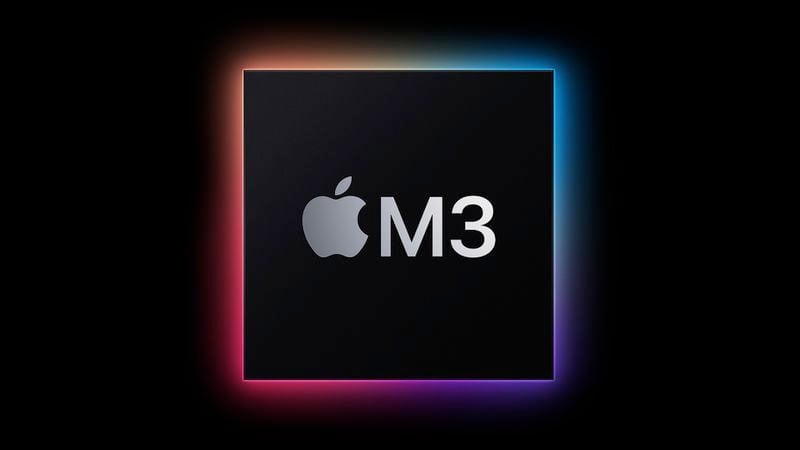Get ready to be blown away, because Apple enthusiasts and tech aficionados are absolutely buzzing with uncontainable excitement! Brace yourselves, because the tech giant has sent shockwaves through the industry by ditching Intel processors in favor of their groundbreaking proprietary Apple Silicon chips. 🚀🍏
And that's not all – this seismic shift has ignited an electrifying surge of curiosity that's sweeping through the tech world like wildfire! 🌪️💥 Gear up for a whirlwind of anticipation, as all eyes are fixed on Apple's upcoming lineup, and rest assured, the MacBook Pro models are taking center stage. 📱💻
On the flip side, hold onto your anticipation, dear tech enthusiasts! While the air is thick with the scent of eagerly awaited MacBook Pro updates, let's not leap headfirst into the excitement without peeling back the layers and delving into the nitty-gritty details. It's like standing on the edge of a thrilling rollercoaster – the thrill is real, but taking a moment to understand the twists and turns is equally essential before taking the plunge. 🎢🤯
So, buckle up your excitement, because the countdown to the new era of computing is on, and there's no telling what incredible innovations Apple has in store for us. Get ready to witness a transformation that's setting the tech universe ablaze, and make sure you're armed with the knowledge to make the right moves when the time comes! ⏳🌌
Timing Matters
As Apple ushers in a new era of computing with its in-house designed processors, consumers are naturally contemplating the right time to invest in the next MacBook upgrade. As Ewan Spence aptly highlights in his article, it might not be the optimal moment to make a purchase. The current stage of the MacBook product cycle suggests that Apple is already in the process of testing newer and more advanced MacBook Pro models. Therefore, for those seeking the latest and greatest, it would be prudent to hold off on a MacBook acquisition.
The Evolution of Apple Silicon
In the wake of Apple's successful launches of the M1 and M2 chipsets, the technology community is now eagerly anticipating the unveiling of the M3 chipset. According to recent insights from Mark Gurman, a reputable source in the tech industry, the M3 chip will make its debut in the upcoming MacBook Air models and the 13-inch MacBook Pro. The chipset will also extend its capabilities to the Mac Mini and the iMac. Additionally, there are intriguing indications that the M3 might find its way into the next iteration of the iPad Pro.
Performance Insights
One of the most enticing aspects of the new M3 chipset is its composition. It is reported to feature four high-performance cores and four efficiency cores, a configuration that aims to strike a harmonious balance between power and energy efficiency. However, the question on everyone's minds revolves around the performance gains when compared to its predecessors.
While there's speculation that the performance increase could be in the range of ten to fifteen percent, Ewan Spence offers a compelling perspective. For those engaged in tasks like home video editing, podcast creation, and app development, the current MacBook Air with its M3 chipset already provides more than ample performance. In this context, the anticipated performance boost in the M3-equipped MacBook Pro might not be as significant a leap as anticipated.
Choosing the Right MacBook
Apple's dedication to innovation and technological advancement is evident through its meticulous design and testing processes. The company is already testing chipsets that will drive the future generation of MacBook Pro laptops. Developers have uncovered traces of the M3 Max chipset in log files, showcasing its 12 high-performance cores and 4 efficiency cores. This chipset's prowess, coupled with its 48 GB of RAM, signifies a significant leap from the current M2 chip.
Ewan Spence's article serves as a reminder that the real power in the MacBook lineup lies further up the portfolio. Those who require substantial processing power for demanding tasks should keep their gaze fixed on the horizon for the unveiling of the M3 Max chipset in the forthcoming MacBook Pro models.
Conclusion
In the rapidly evolving landscape of technology, staying informed about the latest advancements is crucial. Apple's transition to its own Silicon chips signifies a groundbreaking transformation in the world of computing. As consumers contemplate upgrading their MacBook devices, Ewan Spence's insightful analysis encourages a cautious approach. With the imminent release of the M3 chipset and the promising prospects of the M3 Max, it's evident that Apple has something even better in store for its MacBook Pro lineup.

No comments:
Post a Comment